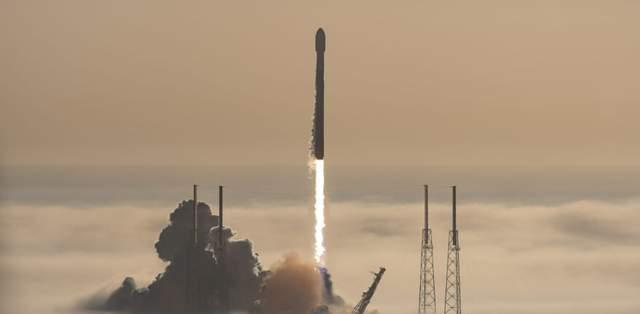Do you want to launch your own personal satellite? Do you want to have your own space WIFI? Do you want Musk, the world's richest man, to serve you? Now grab your phone, open SpaceX's website, and order online. A kilogram costs only $5,000. Family, today in the live broadcast room, the horse boss must give the uncle a face, we put the price down, fracture price, a kilogram as long as 3500 US dollars, as long as 3500, you can send their own personal satellite to space, such a benefit, we only go online for 1 minute, need to grasp the little yellow car.

Do you want a satellite of your own?
Affirm that Ha, Xiaobian just simulates the live streaming with goods, not advertising Ha, but Musk's SpaceX company, recently really launched the Transferer "carpooling" business, just like ordering Tesla electric vehicles, in its official website you can book satellite launch services online, and due to the maturity of the "Falcon" 9 rocket reuse technology, its lowest price has hit the ultra-low cost of 3500 to 5000 US dollars per kilogram.
Prices are as low as $3500 per kilogram
On SpaceX's official website, we can see that its launch orbit has SSO, LEO and POLAR choices, that is, sun-synchronous orbit, low-Earth orbit and polar orbit, while the Earth orbit, GEO geostationary orbit and TLI Earth-Moon transfer orbit in MEO are not currently available online booking, but can provide customized services, which will be opened in the future.
Click here and you can really order
Same as Tesla online car selection
After filling in the basic information, selecting the launch track, launch time and payload weight, after successful submission, there will be a salesman who will take the initiative to contact you. All you have to do is transport satellites or other payloads to the designated launch site 30 days before launch date. If the launch is cancelled due to force majeure such as weather and war, SpaceX also promises a 100% refund. Of course, if it is your own reasons that lead to the launch delay, you need to pay a 10% rescheduling fee, spaceX's rocket will not wait for you, can only be the next "carpool".
That's the project
See here, you don't want to be too happy too early, don't think that you really have to pay $3500 to launch a 1-kilogram satellite into space, SpaceX has a starting price, is $1 million, 200 kilograms of payload, the excess is increased at a price of $5,000 per kilogram. Of course, today in the uncle's live broadcast room, the horse boss must give the uncle face, maybe he can hit the price to $3500 per kilogram.
Starting at $1 million
In addition, this fee does not include the satellite itself, so you have to have your own satellite first, find a place to build it quickly, SpaceX will also launch satellite customization services in the future, the cost is calculated separately. Customized satellites also have certain requirements: first, the weight is limited to 454 kg and 830 kg, and a single satellite cannot exceed this maximum; secondly, the interface of the shelf can only use 15" and 24" ESPA specifications.
First of all, you have to have a satellite of your own
This is not the full cost, if your satellite needs to be equipped with interface adapters and separation systems, the cost is calculated separately; if the satellite needs to be refueled at the launch site, yes, the satellite also needs fuel, the cost is calculated separately; if you want to buy insurance, the cost is separate. Yes, just like buying a car at some 4S stores, insurance must be bought at their place.
I know the essence of business too well
SpaceX's Transferer "carpooling" business began on January 24, 2021, when an N-hand Falcon 9 rocket sent 143 satellites from 13 customers into SSO's sun-synchronous orbit at a time during the Transferer-1 mission, setting a new world record for "one arrow and 104 stars" set by India in 2017.
That's how satellites carpool
On June 30, 2021 local time, SpaceX's Transferer-2 mission used an N-hand "Falcon" 9 rocket to send 88 satellites into space, including the first Kuwaiti satellite. On January 13, 2022, SpaceX once again used a 10-hand Falcon 9 rocket to send 105 satellites from 29 customers in 17 countries into a 550-kilometer orbit. The target orbits of the three missions are all sun-synchronous orbits, and it seems that this orbit is more popular.
All three launch targets are sun-synchronous orbits
This track is very popular
Of course, the personal satellite that has been talked about for so long before actually seems to be a bit exaggerated at this stage, but there are already many precedents for colleges and universities, primary and secondary schools to launch satellites. In addition, for some countries with underdeveloped space but full of curiosity about the universe, such as Israel, South Korea, Myanmar, Bangladesh, and a large number of Middle Eastern countries, are the most potential customers of SpaceX's Transferer mission.
Ransporter-3 missions